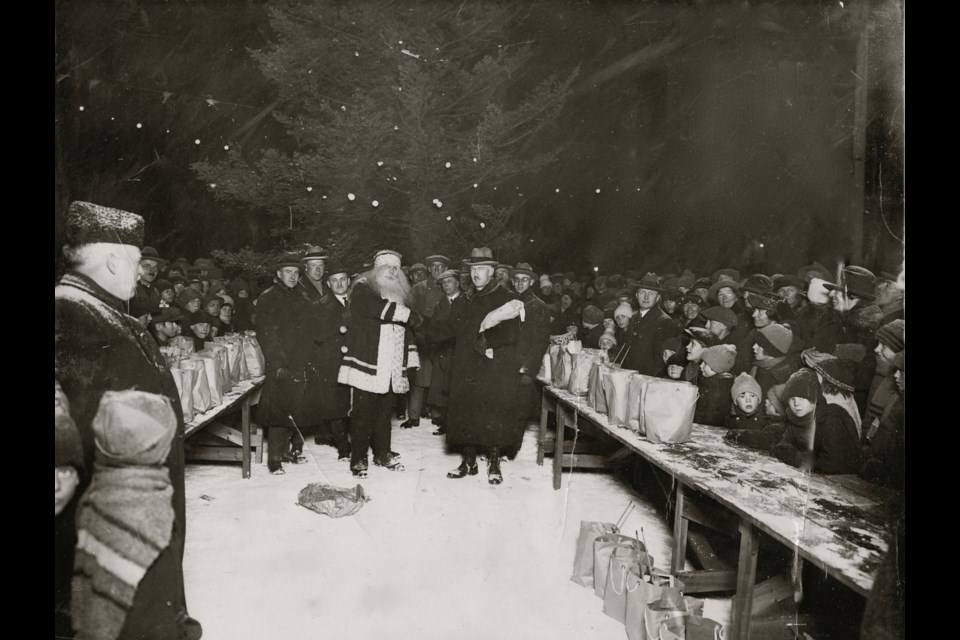Postcard Memories is a weekly series of historic postcard views and photos submitted by René Hackstetter.
The Peace was made in 1919 and Midland Shipyards grew quiet.
It was the end of the launchings of War Fury, War Fiend & War Levet. Demobilization only three years out. Rebuilding a land crippled for defending the right for us to disagree.
Christmases since the end of the war were tough.
Here is downtown Midland in 1922.
Are the kids happy? You bet, they marked this season with joy!
Fathers, not much older than twenty, had fought, returned, found jobs, created families and a home.
Post-war shipbuilding continued with further launchings of grain and bulk carriers. Glenclove 1920, Canadian Logger ’21, Glenleg ’23, LeMoyne ’26, City of Montreal ’27, Gleniffer ’34, Gleneagles ’35.
Those builds kept the yards alive.
The Great Lakes is our lifeline, a strategic waterway and a heartland. Our Harbour, with its sign ‘Rick Leaney Way,’ a quiet nod to all the ships captains who sailed the Lakes.
His father knew them all, and Rick knew them all in his turn. Hawser chains link them all.
Good fortune, Midland working men had employment in the Yards between wars and all the while the centre of a Great Lakes grain trade.
Our mill processed and shipped flour to a recovering England, Europe and the world. We still feed the world.
The LeMoyne was the largest bulk freighter on the Great Lakes, launched June 23rd, 1926.
Flour and our daily bread came from grain farms on the Prairies…you get it. The Mill is here, not on the Floss or the Wye, but on Mundy’s Bay.
Millers work here. Mariners ply these inland oceans.
Their notions of charity are borne from want, of a life on the grain boats, away from family and a slim hope of keeping some of the money earned to take home at winter berth. God willing.
The men who ran these mills had grown from hard-scrabble roots in the dwindling forests of the Bay and they too knew want.
Shipping and the grain trade was a deeply respected livelihood after the forests were stripped.
I am certain that each Christmas as these men came in for winter berth, their thoughts were with family at the end of the year, duffel bags filled with one or two gifts for their kids and happy to be in home port.
Merry Christmas and a Happy New Year
René Hackstetter December 21



.jpeg;w=120;h=80;mode=crop)